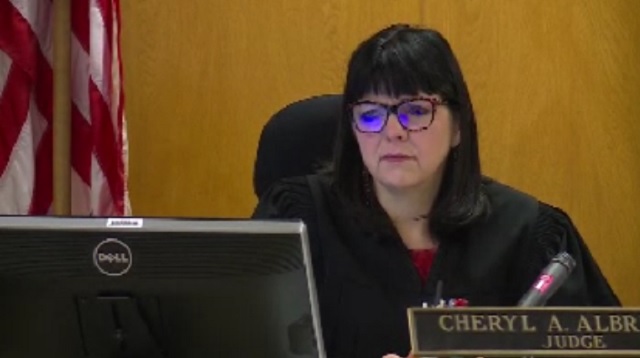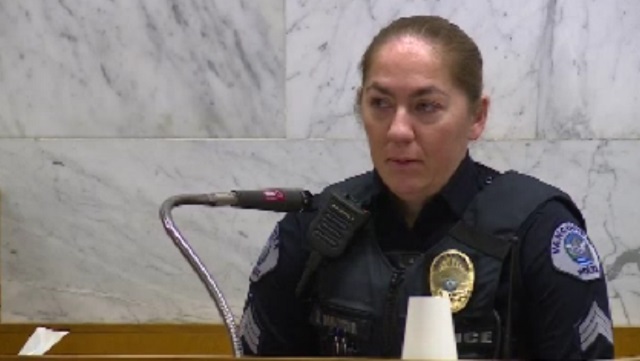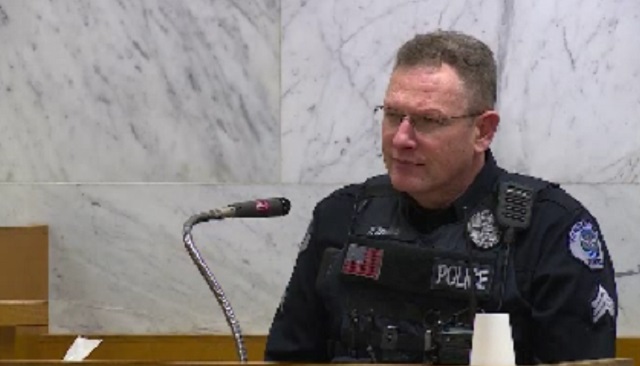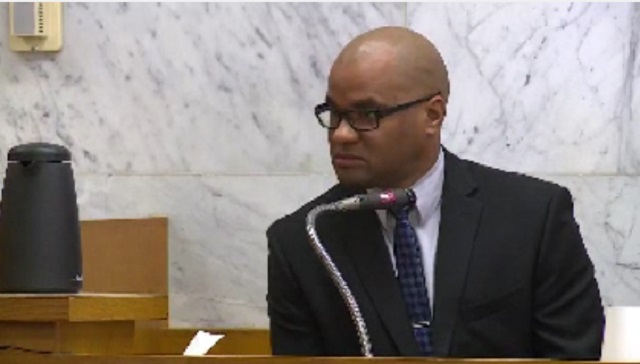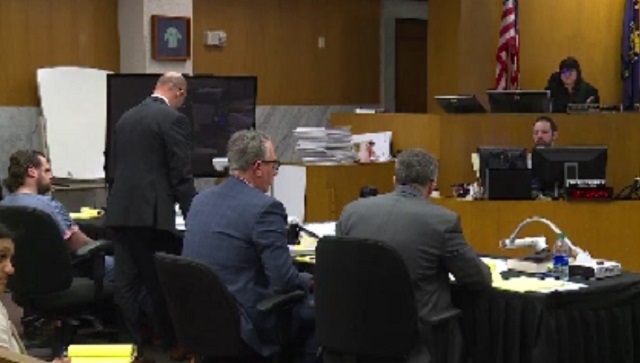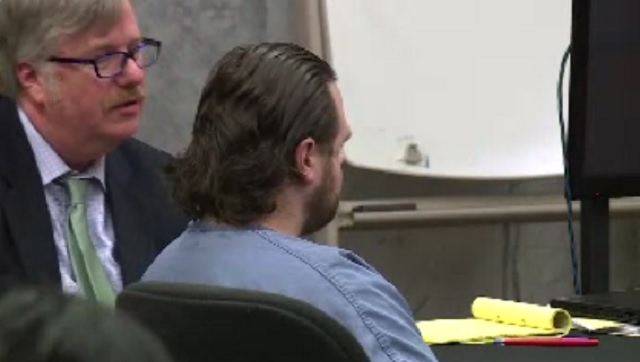PORTLAND, Ore. (KOIN) — The defense of Jeremy Christian in the MAX attack murder trial began with the testimony of a use-of-force expert who underwent a fiery cross-examination.
And it also included a stern warning from Judge Cheryl Albrecht to Christian, who had a brief outburst at the prosecution. The next outburst, Albrecht told Christian, and he would be removed from the courtroom.
Christian, 37, is accused of killing Ricky Best and Taliesin Namkai-Meche and critically wounding Micah Fletcher on the Green Line train as it arrived at the Hollywood Transit Center.
The defense called 6 witnesses on Monday and all but one were brief. Court recessed around 2 p.m. with more defense testimony expected on Tuesday.
Use-of-force expert testifies
Stephen Yerger was actually the 5th witness called to the stand in Christian’s case. He gave much more context and color for Christian’s attorneys’ self-defense argument.
Yerger, who lives in Idaho, testified he’s been in this field for nearly 30 years and was asked by the defense to review materials related to the May 26, 2017 attack. He said he viewed more than 121 videos of the events and more than 59 written reports.
He drew distinctions between MAX passengers Shawn Forde and Micah Fletcher. Forde, Yerger said, was clearing demonstrating de-escalation. Forde positioned himself where he could intervene and used humor, smiled, stayed calm and spoke in a low voice.
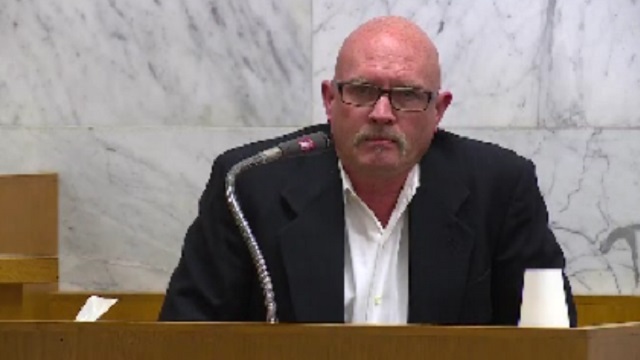
Yerger described Fletcher as “pouring gasoline on a fire,” and escalated the situation through loud shouting, aggressive body language and getting too close.
Taliesin Namkai-Meche, while sitting across from Christian on the train may have seemed harmless, Yerger said. But he was sitting at an angle and putting the cell phone “in his face” was confrontational.
“He came to Mr. Christian,” Yerger said. “Mr. Christian did not go to him.”
In a situation where Christian was already “having some sort of issue going on,” that action was more than likely just going to make it worse. Yerger characterized the phone slap as a defensive move, and when Namkai-Meche stood up, he said the seated person automatically is at a disadvantage.
“I’d stand up too,” he said.
That’s when Fletcher entered the picture and the start of what Yerger characterized as a “schoolyard standoff,” bumping chests and waving arms.
Yerger also noted that most trainers these days teach third-party intervention (such as Fletcher intervening on behalf of Namkai-Fletcher) is very high risk. There are too many unknown variables, he said. Most of the time, the person intervening has not seen all of the events and don’t know what they’re getting into.
Defense attorney Dean Smith also asked about the initial push Christian gave Namkai-Meche. Yerger said that could be to create distance, rather than to provoke.
Yerger said some of the language Christian used, like “do something,” is commonly seen in altercations like bar fights or gang disputes when one person is testing to see if the other person really will make it physical.
Smith asked him to talk about what happened after Fletcher pushed Christian down.
Christian is already been presented with two people, so that’s a disparity, Yerger said. Now he’s being thrown down by someone who’s been smaller and very aggressive.
Ricky Best, who appears to have had no involvement in the situation at all, may have been the victim of tunnel vision, Yerger said.
The defense also asked about the fact that Namkai-Meche’s hands were full with his phone and his lunch.
Yerger said that in stressful situations with a lot of things happening simultaneously, people can’t always keep track of everything that multiple people are doing.
Finally, the defense brought up the fact that Christian has a metal plate in his head. Smith asked if that would make a difference. Yerger answered that it could because it implies that if the person gets hit hard enough in the head, they could die.
Cross-examination
Prosecutor Jeffrey Howes began his cross-examination of Yerger aggressively, and maintained the tone throughout. He targeted Yerger’s statement that the fact Namkai-Meche’s hands were full was irrelevant and questioned him about the gasoline on a fire analogy, even asking the other man if he understood what he meant by that analogy.
Howes asked where the line is between filming someone and putting something “in their face” and appeared to laugh when Yerger said that it depends on the person whose face it’s in.
Howes also questioned why Yerger had not watched the 50% slowed down video of the attack that we saw in court last week. He answered he was not asked to review it.
Christian himself spoke up during the cross-examination, when Howes was asking about the moments when Christian drew the knife. Howes said Christian switched the knife from left to right hand before anybody had shoved him and asked if that was significant.
Yerger began to answer that he didn’t know if that’s what happened.
Christian’s lawyers began to interject when their client said, “That’s because it didn’t happen, that’s why.” That’s when Judge Albrecht told Christian he needs to be quiet and not comment during witness testimony or else he will be escorted out.
Toward the end of cross-examination, Howes said Christian didn’t express fear in his words on the train as he was getting pushed toward the door.
Yerger said people express fear in different ways and sometimes say things that sound confident when they are not.
Finally, Howes asked if Yerger knew Oregon laws regarding self-defense, provocation, and initial aggressor. Yerger said he does not know those laws “by heart.”
Demetria Hester recalled to the stand
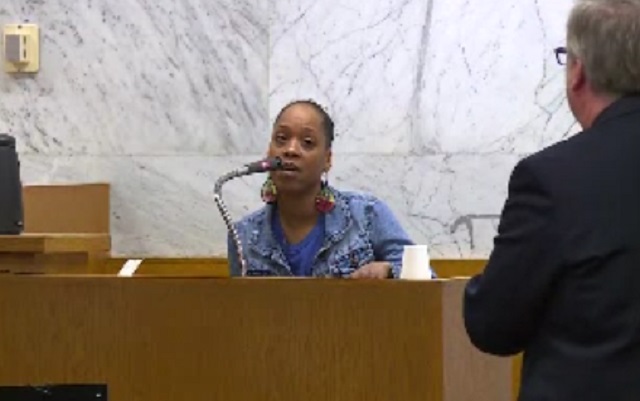
The last witness for the defense on Monday was Demetria Hester, who earlier testified for the prosecution. Christian’s defense attorneys asked her about a press conference she gave in August 2017 that had a slightly different version of events about her assault the night before the MAX attack.
In that press conference, Hester said she got off the MAX and Christian lunged at her with a Gatorade bottle and hit her in the eye before she Maced him. In her earlier testimony, she said she sprayed him in response to threats and then he threw the bottle.
In cross-examination, the prosecution pointed out that in the press conference video, Hester still had a black eye — 85 days after the assault.
Earlier testimony for the defense
Over the weekend, the defense filed another motion over the weekend seeking to bring in three police officers to testify about the 2017 rally in Vancouver where Micah Fletcher was arrested.
Attorney Dean Smith claims Fletcher misrepresented his involvement in the rally during his testimony — Fletcher said he was throwing smoke bombs on his own, the defense says he was distributing them to others to throw into crowds — and did not admit association with any of the protesters, or Antifa, which Smith said is another issue in this case.
Smith briefly mentioned this past Saturday’s rally and protest in downtown Portland, including that several people were arrested. Smith argued Antifa uses tactics like wearing masks and dressing similarly because the group highly values anonymity. He also brought up the Montavilla rally a month later, where Fletcher dressed as a clown.
Smith said it’s hard for the state to argue Fletcher was reformed after his arrest if, 3 weeks later, he was at the Montavilla rally alongside others dressed similarly who were interfering with Christian’s freedom of speech and interfering with his mobility.
Judge Cheryl Albrecht said she is inclined to allow officers’ direct observations of and interactions with Fletcher, but that talking about how Antifa generally acts and even acted at rallies where Fletcher was is “sheerly guilt by association.”
First on the stand was Vancouver Police Sgt. Holly Musser. She testified she saw Fletcher hand a smoke bomb to someone else, who then threw it over the fence into the group of ralliers.
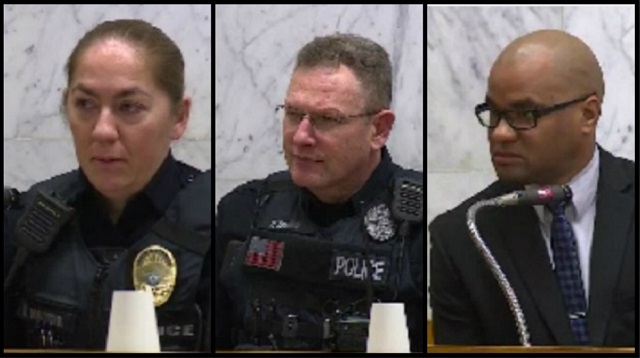
Sgt. Patrick Johns was working the perimeter. He heard radio traffic that someone had thrown smoke bombs. Armed with a description of an individual last seen running north, Johns followed and detained Fletcher. Johns described him as compliant. He noted Fletcher was wearing socks over his shoes, which was unusual.
The defense also called another officer who picked up Fletcher’s dropped bag, containing what appeared to be smoke bombs and a gas mask.
Officer Christopher McDonald with the Portland Police Bureau was the 4th witness. He wrote a report after Christian was arrested noting the suspect may be under the influence of a stimulant. McDonald testified he thought this because Christian seemed “scattered” and had movements that were at times lethargic and then very quick and “twitchy.”
The first batch of witnesses were all very quick and matter of fact. But the fifth witness, use of force expert Stephen Yerger, gave much more context and color for Christian’s attorneys’ self-defense argument. It also prompted a fiery cross-examination.
After 7 days of testimony from witnesses, investigators, forensic evidence collectors, and family, the state rested its case on February 5.
The final day of the prosecution’s presentation was also the final day for one of the jurors, who was excused because of hardship. One of the 2 alternate jurors will move into that spot.
Motions were discussed in court on Thursday with an off-day in the trial last Friday.
THE CHARGES AND THE TRIAL
The trial started January 28 at the Multnomah County Courthouse. Witnesses have provided painful first-hand accounts of what happened on the Green Line train at the Hollywood Transit Center on May 26, 2017.
Jeremy Christian is accused of killing Taliesin Namkai-Meche and Ricky Best and nearly killing Micah Fletcher that day on the train. He has pleaded not guilty to 12 charges: two counts of first-degree murder, one count of first-degree attempted murder, one count of first-degree assault, one count of second-degree assault, three counts of second-degree intimidation, two counts of unlawful use of a weapon and two counts of menacing.
Digital reporter Hannah Ray Lambert covers the Jeremy Christian trial for KOIN 6 News and KOIN.com. Follow her on Twitter for a constantly-updated, minute-by-minute breakdown of the testimony.
Complete KOIN Coverage: The MAX Attack Trial
KOIN 6 News will be in the courtroom each day
and provide updates throughout the case
